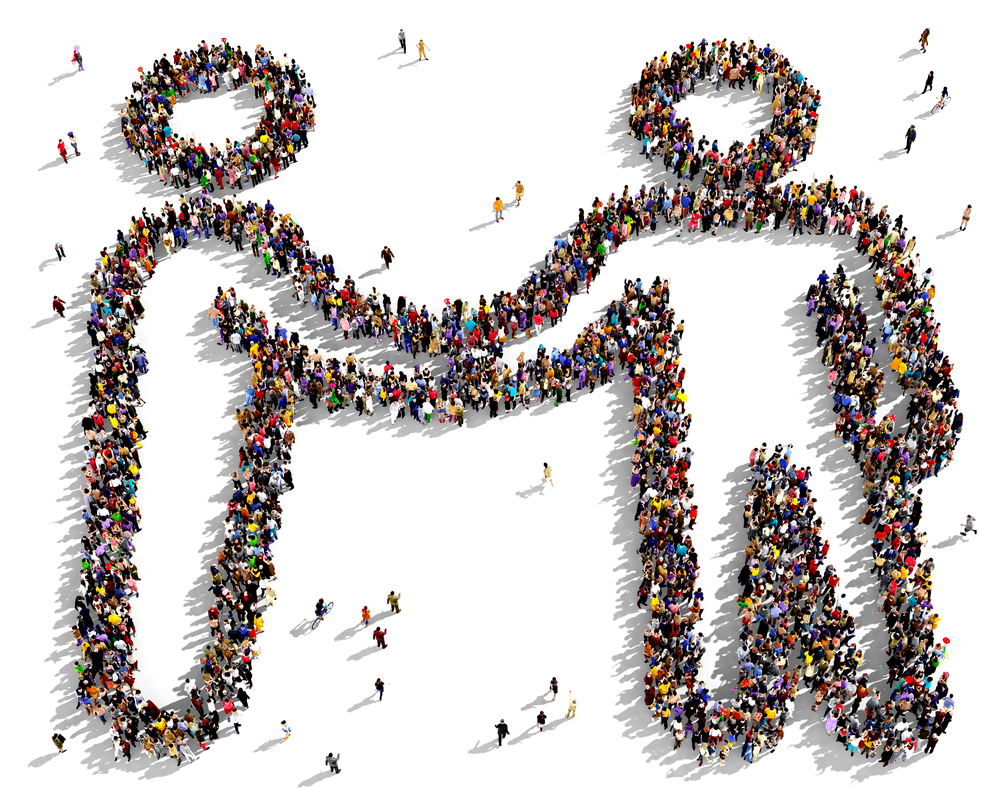
03 Sep So… You Want to be an Ally?
As the conversations revolving around diversity, equity, and inclusions become more common practice in the workplace, it is important to understand the difference between being accepting of differences and truly being an ally. While people are realizing that being an ally is imperative to the success of the community, they are still seeking to understand how to go about being one. But hey, that’s a step in the right direction.
So, you want to be an ally? Great! Here’s some information to help you start your journey.
Being an ally is not a passive experience. Many people are quick to call themselves an ally, but there is so much more to it than a label. When you commit to living as an ally over simply identifying as one, you are embarking on a journey of consistently engaging in self-reflection and actively practicing equity and inclusion.
I’m not here to provide you with a step-by-step guide to being an ally. While I wish I could tell you the answer is that simple, the truth is that there is no one-size-fits-all approach to allyship. This journey will look, feel, and sound different based on the individuals involved, as it should. This is a personal and ever-changing experience. While no two stories of allyship are exactly alike, there are a few basic guidelines to follow to ensure that you are being the best ally possible.
Be honest about your privilege.
Before you embark on the journey toward allyship, you must first be honest about the privileges you have. If we cannot accept the privileges we have over others, we are not acknowledging the inequalities structured within our society. If we are not acknowledging our privileges and seeking to understand the powers they hold, we are shutting down the need for equality and inclusion.
Here’s the thing, no one is asking you to be perfect. No one is blaming you for being born into the privileges you have. No one is shaming you for working to get where you are. However, it is important the understand the circumstances and advantages that have played a role in your life up until this very moment. So no, it’s not about being perfect, but rather being aware and willing to learn.
Seek to Understand
Consider the books you’ve read recently. Have any of them explored stories of people and communities different from your own? Books are a fantastic resource to further our understanding of other people and their realities. I challenge you to expand your library, reading perspectives that are outside of your norm. Remember, you will never have a paradigm shift if you always surround yourself with the same people and the same information.
So, maybe you’re not a reader. Consider how you talk to other people. Engage in thoughtful and curious conversations. Ask questions with a hunger to learn. Be willing to listen without judgment. Listen with the intent to understand versus being quick to rebut and prove a point. In order to be a good ally, we have to be willing to be fully present when listening, consciously digesting what we are hearing. As we begin to understand, we can then consider how to be intentional with our words and actions.
Teach With Grace
Think about a moment in your life where you were so angry or frustrated that you said or did something that you regretted instantly. We’ve all been there. However, we must recognize that we are in control of ourselves and how we respond to situations. People are always watching and listening, learning from what we do and say. Once we begin to consider how our responses can be used as teachable moments, we can understand the power we have when we say and do the right thing.
Of course, it’s normal to feel anger and frustration at times, but when something happens, we must rise above the impulse and choose to educate with grace and patience. It’s not always easy to choose grace, I know, but it is achievable by being intentional with how we speak and act.
Be Ready to Make Mistakes and Have the Humility to Apologize
In a perfect world, we would never say or do the wrong thing. But we don’t live in a perfect world. The truth is, we all have biases, both conscious and unconscious, that impact our decisions. Part of being this journey is facing uncomfortable truths and uncovering beliefs embedded in our lives. We don’t always do the right thing. We are all human and being an ally doesn’t mean we are free from making mistakes and miscalculations. But when our words or actions are hurtful, we must be humble enough to apologize.
The key here is that when we apologize, we must do it for the sake of doing what we know is right. This means that we cannot expect forgiveness as a reward. Of course, admitting we are wrong is not always easy but to truly apologize is a selfless act. We are all in a different place and while some people will be ready to accept your apology and have a conversation about it, others may not be ready or unwilling to have the conversation and that’s okay. They’re just at a different place on their journey of life. Remember, you are in control of how you respond.
Be Prepared to “Stand With”
The late Senator Paul Wellstone coined the phrase, “we all do better when we all do better.” Anyone can be an ally, and everyone will need an ally at some time or another. You don’t need to be part of a particular group to stand with them. When you see someone struggling, being discriminated against, or taking one of the many hits society can throw at us, that is when allyship is calling you. In that moment, you can choose to carry on as you were or you can choose to stand with them and be an ally.
It takes courage to stand with those who are different than you. There may even be consequences of doing so. But rather than ignoring the situation, ask yourself, “what are the consequences, and is it worth it?” Only you know the answer to that question.
Be Better Today, Than You Were Yesterday
We don’t know what tomorrow will bring. Each day provides us a fresh opportunity to work on our allyship. Maybe you made a mistake yesterday and didn’t have the humility to apologize, or you reacted to a situation without grace. Perhaps you watched someone struggle without offering help. It happens. Set an intention to do better, to be better, and know that being an ally is a never-ending journey.
Be better than you were yesterday; commit to growth and watch your family, team and communities flourish. Have the courage to speak up when you see something happening that is wrong. “Ally” is a verb, not a noun. You don’t have to act out with anger and aggression. Just be unwilling to allow anyone to stand alone.



